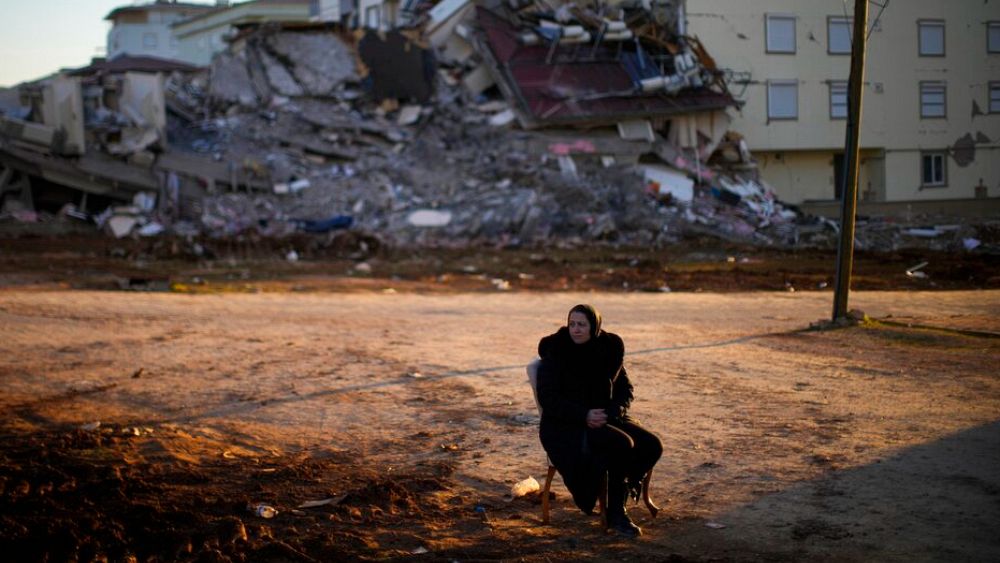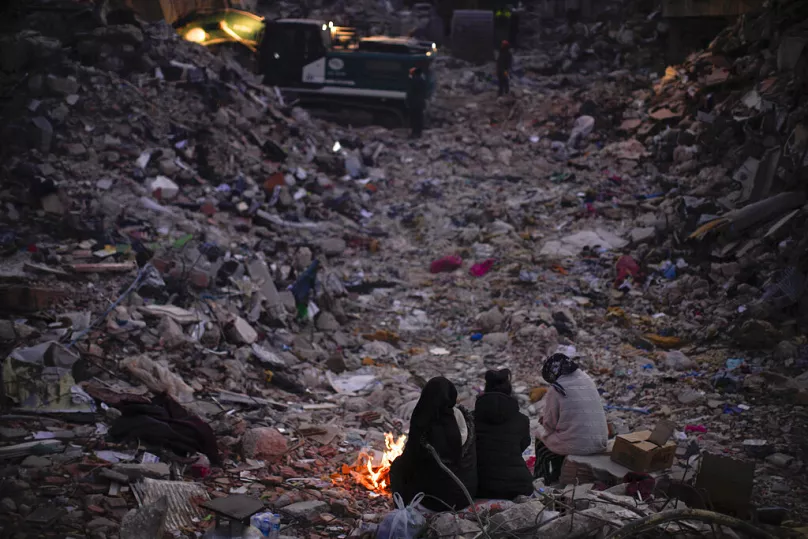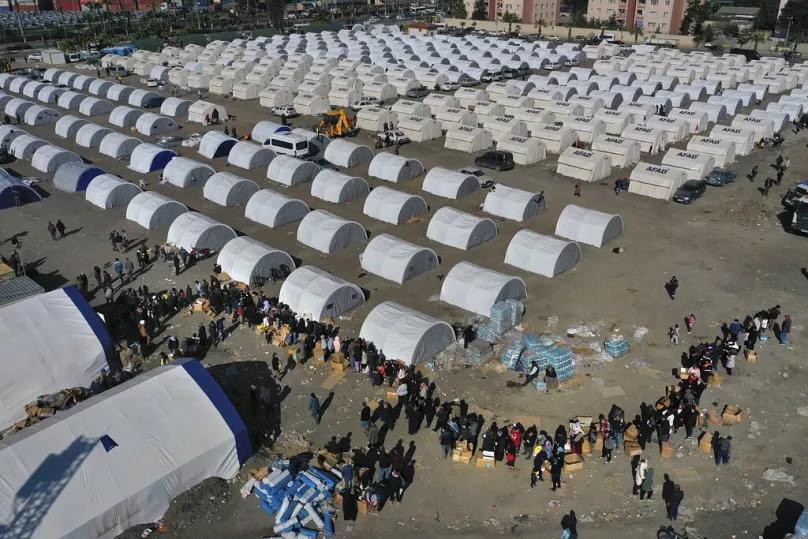‘No foreigners’: Discrimination allegations mar Turkey quake response
4 min read

In the early hours of the morning Daria Gilani, who asked that we not use her real name, awoke to the earth shattering beneath her.
She and some friends — all Iranian asylum-seekers — came onto the “tense” and “sleepless” streets of Mersin, a port city on southeastern Turkey’s Mediterranean coast, eventually finding refuge at an improvised shelter set up for survivors of the devastating earthquake and aftershocks.
But they were met with hostility.
The group says they were told there was “no place for foreigners” and kicked out by a security guard.
While they were eventually allowed in, after complaining to the manager of the centre, Gilani and her friends say they were separated from Turkish citizens, and put in a different part of the building with other refugees.
On the second night, it was the same story.
“The guard was behaving harshly and refused to let us in,” she told Euronews. “I decided to camp out in the streets in order to not face the way they treated us again.”

And they are not alone with that experience.
In March, independent media organisation Syria Direct reported Syrians were in some cases being denied aid by state-linked organisations, though the vast majority are receiving help.
They cited the case of Bilal who — after losing 15 of his relatives in the disaster — was expelled from a shelter by five Turkish police officers, asking “you want to leave peacefully, or do we need to use force?”
‘Solidarity in the ruins’
Striking on 6 February, the 7.8-magnitude earthquake and series of deadly aftershocks wrecked southeastern Turkey and Syria — home to millions of refugees.
An estimated 13 million people have been affected across an area two times the size of the Netherlands, according to Didem Demircan, Deputy Executive Director of Oxfam in Turkey.
Millions are still displaced and in desperate need of basic assistance.
In the immediate aftermath of the quake that affected 11 provinces, she says a “big” scarcity of shelter in the disaster zone caused problems.
However, the humanitarian worker was “not sure if there was deliberate discrimination against refugees”, instead emphasising “economic inequality”.
“Unfortunately, the scale of the disaster was very big,” Demircan told Euronews. “It impacted all sensitive communities, including not only refugees but women, the poor, people living in rural areas and the elderly.”
“All injustices and inequalities were dramatically increased because of this earthquake,” she added.
Studies have shown that women and girls are disproportionately impacted by natural disasters, exacerbating the risk of violence and existing gender inequalities.

Like others, Turks and foreigners alike, Gilani has struggled to receive regular aid, with the offices of NGOs closed or destroyed, while the migration office has postponed individual asylum appointments.
An asylum-seeker for multiple years, she fled political persecution in Iran, but cannot seek safety elsewhere as rules prevent her from leaving Mersin.
“The issue has caused so many refugees big troubles,” she said, adding some asylum seekers have closed their cases and left Turkey “due to all the pressures” caused by the quake.
‘They blame us’
Refugees fleeing the conflict in Syria in particular were largely welcomed by sympathetic Turks over the past decade.
But xenophobia and racism against Turkey’s refugee population – the largest in the world – has risen over the years, as the country’s economy has hit the rocks.
Inflation has run at a breakneck rate for many months, pushing millions of Turks to the brink, while the Turkish lira has plunged in value.
“Most Turkish people have negative views towards refugees and immigrants, just like the way the security guard treated us,” said Gilani. “But this is not a systematic issue.”
“Refugees are considered the cause of the economical problems and tensions Turkish people are facing. Now with the critical situation due to the earthquakes and limited facilities, they are showing their frustrations,” she continued.
However, Demicran, who is helping organise Oxfam’s humanitarian response, said the natural disaster had an “equalising effect”.
“Young, old, rich, poor, refugee, local, everyone has impacted the same way,” she told Euronews.
This universalism has given rise to “solidarity” among people struck by the quake, with “everyone gathered around the rubble to save each other.”
Syrians, who number an estimated 3.6 million in Turkey, have been extensively documented helping their neighbours, and vice-versa.
“Just like anywhere in Europe, where there is a rise of right-wing populism, [racism] is used by the politicians to raise problems within the community,” said Demicran.“They blame refugees.”
Politicians from the far-right have fuelled anti-Syrian sentiment in regions hit by the earthquakes, according to the Stockholm Centre for Freedom, a Turkish think-tank based in Sweden.
In January, Ümit Özdağ, leader of Turkey’s far-right Victory Party launched a new campaign dubbed “Bus to Damascus” aimed at deporting Syrian refugees from Turkey.
“We are all the time in the area. We also see solidarity,” said Oxfam’s Demicran.
“We all need to act together to fight against this right-wing narrative.”





